Annan expressed satisfaction with the development of political and economic transactions between the two countries following the removal of sanctions and implementation of JCPOA since 14th of July, 2015.
"Many Danish business delegations have visited Iran and we expects many other ones this year; we also have had an Iranian business delegation going to Denmark and we hope to see more Iranian business delegations going to Denmark in near future so our commercial links can be further developed," Annan noted in an exclusive interview with Mehr News, while responding to economic achievements of Iran's historic nuclear deal.
Pointing to the tourism industry, Annan underlined that there is a huge interest among the Danish tourists to go to Iran; "Iran has a rich culture, a rich past and equally important is the security provided to foreign visitors who come to Iran," he told Mehr News correspondent:
How do you evaluate Tehran-Copenhagen relations in the wake of JCPOA and removal of sanctions?
Since the signing of the agreement in July 14 and implementation of JCPOA and even before, developments in Danish-Iranian relations have been very positive in all aspects. If we look at the political issues, we had the Danish minister of foreign affairs in January last year and he was accompanied by the biggest Danish business delegation since 1974, 128 businessmen. The minister had very fruitful consultations with Dr. Zarif. He also met with President Rouhani. Besides, the minister of taxation and deputy ministers visited Iran early this year. Iranian minister for energy Mr. Chitchian has been to Denmark spending several days in Denmark with a very good program. And as I mentioned before, we also have at least two other Danish ministers coming to Iran later this year. We have a broad range of subjects to discuss and I am happy that the nuclear issue is no longer on top of the agenda.
As we have all noticed, there is a full European and EU member states' support for the JCPOA. IAEA has confirmed on several occasions that Iran is fully living up to its obligations according to the agreement so from a political perspective, things are definitely moving in right direction and that is also clear from the facts that we have over the last 6 months established government-to-government cooperation within intellectual property rights between the Iranian IPO (Iranian Patent Organization) and Danish Patent and Trademark Office and the cooperation is actually really taking shape because first of all we will have at the embassy one dedicated employee sent from Copenhagen just to focus on the cooperation within that area between Denmark and Iran.
Another area where we have government-to-government cooperation is within veterinary services, quality of meat, quality of poultry, but also basically having a direct link, direct contact between our two organizations so they can work closer together.
A new area I believe that somewhat would be formalized later this year is within taxation and an Iranian taxation delegation would be going to Denmark at the end of August to learn more about the Danish tax system. Hopefully we can be of help to the Iranian authorities in providing some practices and maybe some new ideas for the Iranian authorities because I believe it is very important that a large share of government expenditure is actually coming through taxes because you see oil prices going down so the Iranian government cannot expect to have a big chunk of its expenditures covered by oil revenue, we have to get the money another way and here I believe taxation is the right way to do it.
What are major economic fields for cooperation between Denmark and Iran?
Last year we had four or five business delegations visiting Iran, this year we have not had so many. We expect our minister for business to come to Iran in mid-November and he is going to be accompanied by a business delegation who will come here looking to opportunities. But we also have had an Iranian business delegation going to Denmark and we hope to see more Iranian business delegations going to Denmark in near future so our commercial links can be further developed. So basically your initial question was how does bilateral relation developed from a political perspective; it was very good, from economic perspective. We had a significant increase in bilateral trade last year between Denmark and Iran and if you look at the number of Iranian exports to the EU, they were just staggering 375 per cent increase in Iranian exports to the EU last year. That is quite important and that could of course not have been possible without the JCPOA.
From a more people-to-people point of view, also we have seen good progress. We have had 53 per cent more Danish tourists visiting Iran last year and the travel agencies I am in contact with say that there is a huge interest among the Danish tourists to go to Iran and I understand why. Iran has a rich culture, a rich past and equally important is the security provided to foreign visitors who come to Iran. What most visitors mention to me after and during their visit to Iran is the hospitality they see when they come here. In addition, we at the Embassy have been able to handle a lot more visa applications from Iranian businesspersons and people who want to go visit their families in Denmark over the last year compared to the previous year – a significant higher number. We of course continue our efforts to provide even better services to Iranians who want to go to Denmark.
What do you say are the major fields for cooperation between the two countries?
Close to 50 per cent of Danish exports to Iran is medicine or medical devices, but also just to illustrate the importance of the Iranian market, you can look at the biggest pharmaceutical company, Novo Nordisk, making insulin. They are now in the process of establishing a factory in Iran, with an investment of $80 million. They are building it close to Karaj and it will generate around 2,000 jobs for Iranians and of course contribute to economic growth of the country. Novo Nordisk is one of the biggest investors in Iran and I know that other Danish companies are very active, since 2015 and in spite of sanctions, they have continued to supply the medicine needed by the diabetes patients in Iran. I know other companies are also looking at opportunities for investment in Iran, as well as employing Iranians. We have had six major Danish companies opening up their offices in Iran over the last year. And each and every one of these companies are of course employing Iranians to do the work for them. Therefore, the JCPOA has been a very good deal; it has opened up a lot of investment opportunities and increased economic growth and increased job creation in Iran.
Has there been any issues or obstacles on banking relations between the two countries?
Banking transactions are still of course a major challenge. The US financial sanctions are making things complicated for European businesses to do business in Iran. While it is a big challenge, I hope that we can find a solution to make it easier for European companies to do business here. Because they are not breaching any sanctions. The issue is how you get them the money out of the country after you have sold their products in Iran.
If you look at the increase in Danish exports last year, which has been by 55 per cent, I do believe that companies have found ways to do the financial transactions, and let me stress, in a legal way. But for a lot of smaller companies, it is difficult, even though they would like to try the Iranian market and may find a need for their products and services in the Iranian market. If they are not a company of a certain size, they’ll find it too challenging to find out how financial transactions are actually done in Iran. For bigger companies it is easier because they have more employees who have their own banking connections. I am working with my colleagues at the Embassy to find legal ways on how we can do these bank transfers so we can increase our bilateral trade to the benefit of both countries.
Danish companies have good experiences in environmental issues, including managing water resources; how Iran and Denmark can cooperate on environmental fields in Iran?
If you ask an average Danish person about this, s/he would say we have way too much water because it is raining all the time. And while it does rain a lot in Denmark, we have focused very much on using our water resources in the most sustainable way.
I remember in Copenhagen we had a public display showing how the water is being consumed and you may see it is reducing down and down and down. It is not because people take less shower, or cook less, it is because there is the consciousness about how to use water resources and that is also why some times it is frustrating for me to drive around Tehran and see people with the water hose in their hands removing leaves with the water. We should not waste the limited water resources. We have a lot of Danish companies, specialized within how to use water resources in a sustainable way and most of it is of new technologies which can limit the water resources being used. I know Madam Ebtekar, I think about 6 month ago she said that the water challenge in Iran is a threat to Iranian civilization and that sounds very bombastic. It is actually not far from the truth, it is a big threat to Iranian civilizations.
As you mentioned that there are some areas in Iran with draught and some times more than draught, Iran border is completely at low level in water resources. Pistachio plantation is dying in Kerman province because there is no water. So Iran has a huge need for new technologies, but also a need for the Iranian population to get a better understanding of how to use a limited natural resource like water. I know that several Danish companies within the water, say very much with interest on Iran, focus areas at the embassy and how we can make that link to the benefit of Iran, but also Denmark, so we have increasing our knowledge sharing within water resources. As I mentioned we are planning a ministerial visit by a minister for business in November. I hope that the border companies were also participating in that delegation since it is a very important delegation.
How do you evaluate technological, educational and university cooperation between the two countries?
I think we have seen good progress as I mentioned before within university cooperation. We have now cooperation in neurology, forestry and archeology. So three concrete areas of university-to-university cooperation. I know some Iranian universities are willing to establish cooperation with Danish universities. We have a special branch for Persian studies at the University of Copenhagen. They are cooperating with universities in Iran and Danish students can come here and take three month of language studies to have access to Farsi and go to Iran. Iran and Denmark are active in capacity building, new technologies and in some government-to-government areas there are also technology cooperation. In all aspects of our cooperation, I see very good progress which I am sure will continue to be developed further.
Danny Annan has achieved his law degree from the University of Copenhagen and has served in a number of embassies and organizations across the world, including in New Delhi as deputy head of Embassy, in Beirut as 1st secretary at Embassy, in Sri Lanka as political advisor to Cease-Fire Mission and Damascus as deputy head of Embassy. He was appointed as Denmark’s ambassador to Islamic Republic since 15th of August, 2015. Annan has taught international law and EU law at the University of Copenhagen between 1998 and 1999.
Interview by Lachin Rezaian


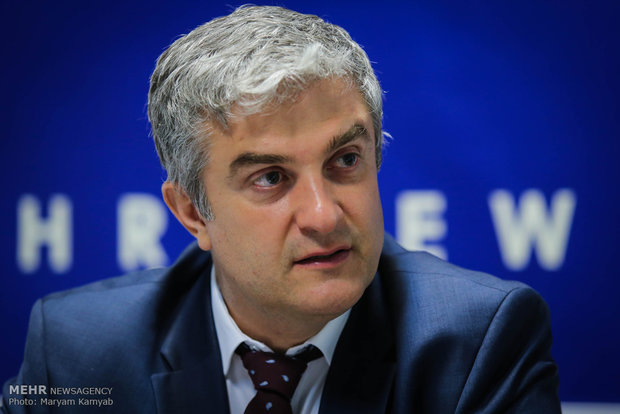
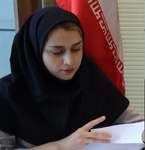


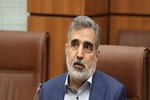
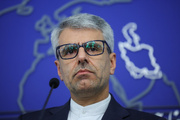














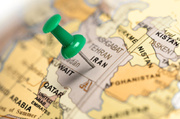
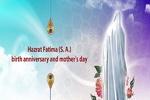

Your Comment